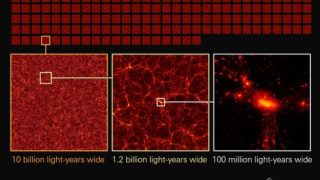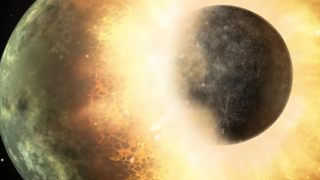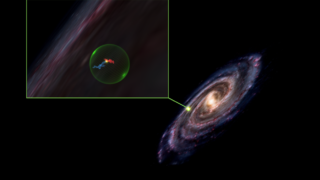
MI weekly selection #443
Massive simulation suite offers views of universe Astronomers have created AbacusSummit, a simulation suite of the universe that contains roughly 60 trillion particles across more than 160 simulations that model the ways dark matter and visible matter interact in a box-shaped environment. Universe Today Infection-fighting cells found in lungfish cocoons The cocoons that encase African […]








